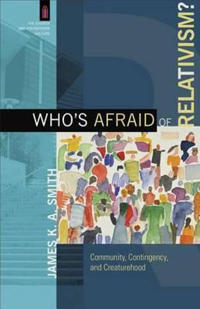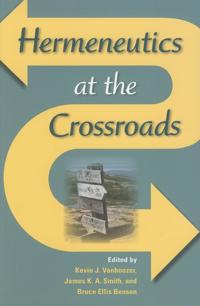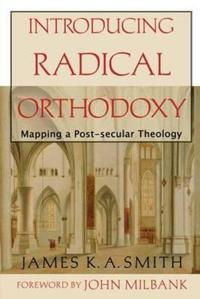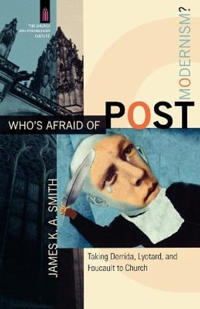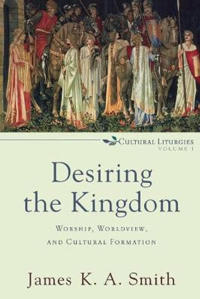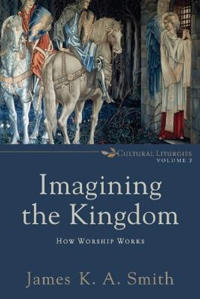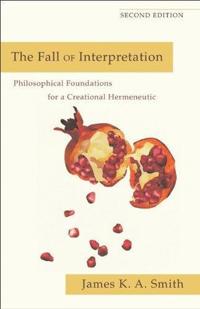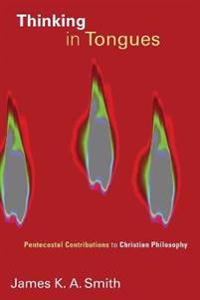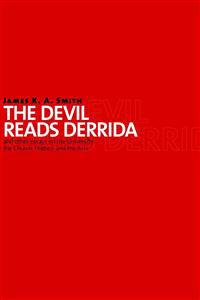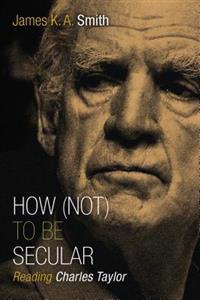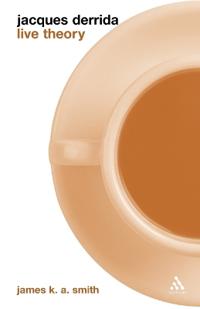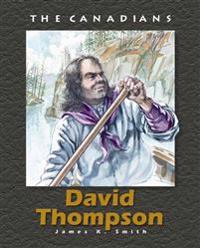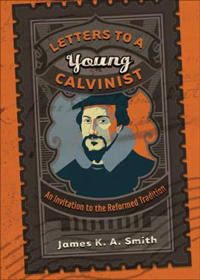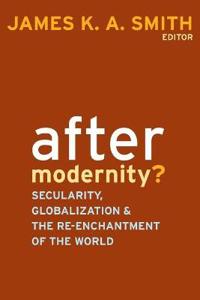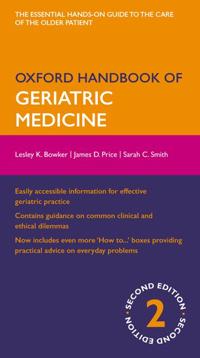Who's Afraid of Relativism?: Community, Contingency, and Creaturehood (Häftad)
avJames K. Smith, James Smith
ISBN: 9780801039737 - UTGIVEN: 2014-04Following his successful "Who's Afraid of Postmodernism?" leading Christian philosopher James K. A. Smith introduces the philosophical sources behind postliberal theology. Offering a provocative analysis of relativism, Smith provides an introduction to the key voices of pragmatism: Ludwig Wittgenste[...]
Hermeneutics at the Crossroads (Pocket)
avKevin J. (EDT) Vanhoozer, James K. A. (EDT) Smith, Bruce Ellis (EDT) Benson
ISBN: 9780253218490 - UTGIVEN: 2006-05In this multi-faceted volume, Christian and other religiously committed theorists find themselves at an uneasy point in history - between premodernity, modernity, and postmodernity - where disciplines and methods, cultural and linguistic traditions, and religious commitments tangle and cross. Here, [...]
Introducing Radical Orthodoxy: Mapping a Post-Secular Theology (Häftad)
avJames K. A. Smith, John Milbank
ISBN: 9780801027352 - UTGIVEN: 200412Although God is making a comeback in our society, popular culture still takes its orders from the Enlightenment, a movement that denied faith a prominent role in society. Today, many are questioning this elevation of reason over faith. How should Christians respond to a secular world that continues [...]
Desiring the Kingdom (Häftad)
avJames K.A. Smith
ISBN: 9780801035777 - UTGIVEN: 200909Malls, stadiums, and universities are actually liturgical structures that influence and shape our thoughts and affections. Humans--as Augustine noted--are "desiring agents," full of longings and passions; in brief, we are what we love.
James K. A. Smith focuses on the themes of liturgy and desir[...]Imagining the Kingdom (Häftad)
avAssociate James K A Smith
ISBN: 9780801035784 - UTGIVEN: 201302How does worship work? How exactly does liturgical formation shape us? What are the dynamics of such transformation? In the second of James K. A. Smith's three-volume theology of culture, the author expands and deepens the analysis of cultural liturgies and Christian worship he developed in his well[...]
The Fall of Interpretation (Häftad)
avAssociate James K A Smith
ISBN: 9780801039720 - UTGIVEN: 201204In this provocative book James K. A. Smith, one of the most engaging Christian scholars of our day, offers an innovative approach to hermeneutics. The second edition of Smith's well-received debut book provides updated interaction with contemporary hermeneutical discussions and responds to criticism[...]
Thinking in Tongues (Häftad)
avJames K.A. Smith
ISBN: 9780802861849 - UTGIVEN: 201007The past several decades have seen a renaissance in Christian philos-ophy, led by the work of Alvin Plantinga, Nicholas Wolterstorff, William Alston, Eleonore Stump, and others. In the spirit of Plantingas famous manifesto, Advice to Christian Philosophers, James K. A. Smith here offers not only adv[...]
The Devil Reads Derrida (Pocket)
avJames K. A. Smith
ISBN: 9780802864079 - UTGIVEN: 2009-06We hear a lot these days about the quest for alternative sources of energy. Has anyone considered Jamie Smith? This whirling dervish of public philosophy generates enough intellectual energy to supply a middle-size city all by himself. John Wilson / editor of Books & Culture / By now, Jamie Smith is[...]
How (Not) to be Secular (Häftad)
avJames K. A. Smith
ISBN: 9780802867612 - UTGIVEN: 2014-05What does it mean to say we live in a "secular" world? Charles Taylor's landmark book A Secular Age (2007) provides a monumental history and analysis of what it means for us to live in our post- Christian present - a pluralist world of competing beliefs and growing unbelief. This book by Jamie Smi[...]
Jacques Derrida (Häftad)
avJames K. A. Smith
ISBN: 9780826462817 - UTGIVEN: 2005-09Jacques Derrida: Live Theory is a new introduction to the work of this most influential of contemporary philosophers. It covers Derrida's corpus in its entirety - from his earliest work in phenomenology and the philosophy of language, to his most recent work in ethics, politics and religion. It in[...]
David Thompson (Häftad)
avJames K.A. Smith
ISBN: 9781550414936 - UTGIVEN: 200608Surveyor, fur-trader and explorer, David Thompson was the first European to descend the Columbia River from its source to its mouth. A partner in the North West Company, Thompson explored western Canada exhaustively, and the maps he produced became the basis for many future maps of the region. Thomp[...]
Letters to a Young Calvinist (Häftad)
avJames K.A. Smith
ISBN: 9781587432941 - UTGIVEN: 201012Who would have guessed that something as austere as Calvinism would become a hot topic in today's postmodern culture? At the 500th anniversary of John Calvin's birth, new generations have discovered and embraced a "New Calvinism," finding in the Reformed tradition a rich theological vision. In fact,[...]
After Modernity? (Pocket)
avJames K. A. (EDT) Smith
ISBN: 9781602580688 - UTGIVEN: 2008-08After Modernity? addresses a cluster of questions and issues found at the nexus of globalization and religion. This unique volume examine various religious-especially Christian-evaluations of and responses to globalization. In particular, the book considers the links among globalization, capitalism[...]
Oxford Handbook of Geriatric Medicine (Pocket)
avLesley K. Bowker, James D. Price, Sarah C. Smith
ISBN: 9780199586097 - UTGIVEN: 201210In an ageing population, geriatric medicine has become central to general practice, and to emergency and general internal medicine in the hospital setting. Diseases are more common in the older person, and can be particularly difficult to assess and to treat effectively in a field that has limited e[...]

